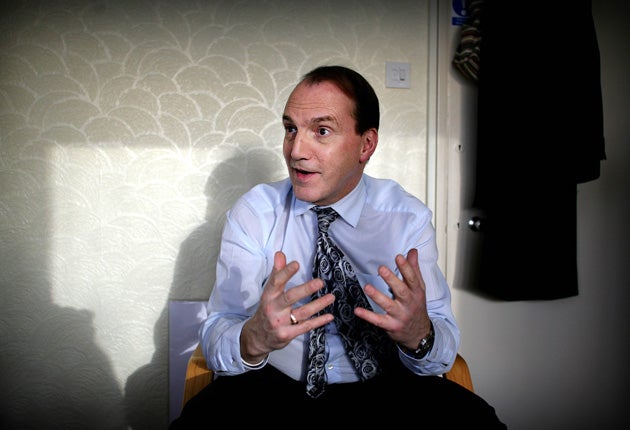Lib Dems must retain identity in Tory partnership, says Hughes

Simon Hughes, the Liberal Democrats' new deputy leader, said yesterday that his party must be "equal partners" in the coalition Government even though the Conservatives have more than five times as many MPs.
In a warning shot aimed at Nick Clegg, Mr Hughes said he must ensure that the Liberal Democrats are "fully consulted" in advance over Government decisions – even when they are highly sensitive. "There must be no surprises," he said in an interview with The Independent.
Mr Hughes, who is on the left of his party, sees his role as ensuring two-way communication between the coalition Government and the Liberal Democrats. He is adamant that his party must retain its own identity, independence and policies, amid fears among some activists that it will be swallowed up by the Tories.
At his first regular meeting with Mr Clegg this week since being elected his deputy by Liberal Democrat MPs, Mr Hughes will demand that Government decisions are "checked and assessed for their impact on the party" and that it is not bounced into accepting them. He said the wide-ranging "coalition agreement" announced last month must be constantly updated, and that unexpected issues that arise "will have to be negotiated regularly and carefully".
His demands may alarm some Tory MPs, who want their party to be in control because it won 306 seats in last month's election compared with the Liberal Democrats' 57.
Mr Hughes said he believed the coalition would survive for a full five-year parliament. "If that is the case, you need two parties to be fully engaged all the time and to have an equal stake in it," he said. "We may be the smaller party, but we must never forget that we have an equal right to be heard and understood and for our fundamental views and positions to be respected.
"We must never forget that in this Government it is the Liberal Democrats, and not the Conservatives, who are the party that represents not just significant numbers of constituencies in England, Scotland and Wales but also urban, suburban and rural communities in each of these three countries too. We have to make sure that this breadth of voices is heard in Parliament and by Government."
Mr Hughes is drawing up a list of issues on which the Liberal Democrats will be able to show voters they "made a difference" to what the Tories would have done had they formed an "unfettered, unmitigated" government.
The Bermondsey and Old Southwark MP warned: "The Tories have to understand what is a huge priority for us – for example, fairer taxation for those on lower incomes, which requires those with broader shoulders to take a greater sharer of the responsibility. The coalition would not be a happy place if they [the Tories] did not understand that." He also listed university tuition fees, nuclear power, nuclear disarmament and supporting the people of Gaza as priority areas in which the Liberal Democrats would want to influence Government policy. All could create tension with the Tories.
Mr Hughes admitted that there was "a potential problem down the line" over tuition fees. He said Liberal Democrat policy remained that fees should be abolished within six years, and that lifting the current £3,200-a-year cap would be "an unacceptable position" for the party. This may be recommended by a review of higher education by Lord Browne of Madingley, the former BP boss.
Although the coalition agreement allows Liberal Democrat MPs to abstain on a rise in fees, many of them pledged to vote against such an increase at the election. Mr Hughes said he hoped there would be a genuine consultation after the Browne report is published, in which his party would "seek to win the argument".
He accepted the need for tough action to tackle the deficit, but said: "It has to be a set of decisions that are fair so that the burden of the cuts falls in a fair and balanced way."
Mr Hughes wants the Liberal Democrats to appoint spokesmen on all issues, even when one of their MPs is the minister responsible for that area in Government. He said these figures would lead new policy groups and should be taken into the confidence of ministers. He believes that initial surprise, and even anger, among some Liberal Democrat members and voters about forming a coalition with the Tories has now subsided.
Although some Liberal Democrat activists worry about the party's exit strategy, Mr Hughes insisted the coalition could have a happy ending. "It depends on the overall performance of the Government being a success, and on having some key defining issues for us where we have been seen to be winning the argument," he said. "We have to show people who voted for us what we delivered. I never thought we would go from third to first place without something in-between."
Join our commenting forum
Join thought-provoking conversations, follow other Independent readers and see their replies
Comments
Bookmark popover
Removed from bookmarks